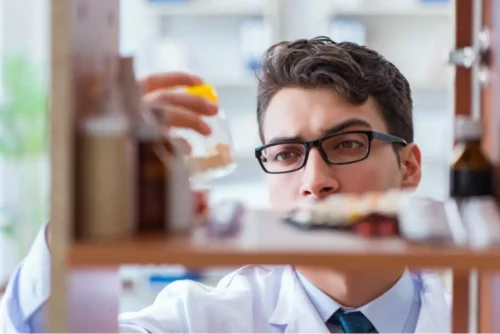Is Alcoholism Genetic? Addiction Treatment Center Rehab

High levels of stress in the environment, a lack of family support and engagement, and peer pressure can make a person more susceptible to engaging in patterns of problematic drinking that can lead to alcoholism. In the 1940s, Alcoholics Anonymous (AA) was founded, and one of its main premises is that individuals are not in control of their drinking. Research into alcoholism and its genetic and potential heritability has been ongoing for decades since then. The American Association for Cancer Research publishes that the Research Council on Problems of Alcohol was established to try and figure out a scientific link for the effects of alcohol on humans. Jellinek was the executive director and became the first director of the Center of Alcohol Studies at Yale in the early 1940s.
Frequently asked questions about cirrhosis and genetics

All of these genes, in combination with environmental factors, play a role in the complex risk of developing alcohol use disorder. Future work to expand our findings could include further analysis of the drug repurposing results, GSEA results, or new analyses of our bulk RNA-seq datasets through differential splice variation. Future investigation of the drug repurposing results including additional experimentation to understand the effects on gene expression and pharmacologic potential of these drugs is essential prior to their use for AUD as a clinical indication. The significant GSEA terms from our analyses, which provide insights into potential pathways and mechanisms implicated in AUD, can be further understood using mechanistic and functional experimentation. Evidence of splice variation by AUD has been previously reported for the NSW-TRC samples 19 but has not been analyzed for the LIBD samples.

What Is Alcoholism?
If alcoholism runs in your family, that doesn’t mean you’re doomed to become an alcoholic. The first thing here is awareness and education – being aware of your family history of alcoholism will allow you to make more informed choices about your drinking habits. You may limit your intake to avoid developing dependence or even abstain from drinking altogether. As with most aspects of a person’s life, one’s propensity toward alcoholism is governed by a complex interplay of nature and nurture. While neither genes nor environment alone can predict alcoholism, both interact in complex ways to increase or decrease a person’s risk. While there is no single gene for alcoholism, there are multiple genes that increase one’s predisposition for the disease.
A systematic review and meta-analysis on the transcriptomic signatures in alcohol use disorder
This page will explain these risk factors, how genetics may influence certain treatment approaches, and how to find alcohol addiction treatment services in Mississippi. Endorphins, or lack thereof, may also predispose someone to alcoholism, Medical News Today reports. Endorphins are what make you feel good when you do certain things or eat special foods. When alcohol wears off, the crash can include depressed moods while the brain struggles to reestablish a chemical balance without alcohol’s impact. If you produce fewer endorphins naturally, it can make it harder for you to feel happy without alcohol and, therefore, increases the desire to drink bigger quantities more often. This compounds the risk of problematic drinking, alcohol dependence, and addiction.
Bulk RNA-seq data processing and quality control (QC)
- Decedents with MDD were defined as those with a lifetime history of five or more DSM-5 MDD symptoms persisting for two weeks or longer.
- There isn’t one single “alcohol use disorder gene.” Rather, there are many different genes that may influence whether someone develops an alcohol use disorder.
NIAAA publishes that one of the biggest risk factors for developing AUD is a pattern of binge and excessive drinking on a regular basis. The variations in the coding regions of the ADH genes discussed above account for only a small fraction of the total variability. Researchers have identified approximately 240 SNPs in the region containing the seven ADH genes, most of them in noncoding sequences (i.e., introns) within the genes and in regions flanking the genes. As described later in this section, some of these SNPs affect the level of gene expression. Learning non-alcoholic ways to cope with emotions, such as exercise, meditation, therapy, or hobbies, can also reduce the risk of alcohol abuse. Developing effective coping skills early in life is crucial for those with a family history of alcoholism.
Family history can indeed contribute to the onset of alcoholism, but this is not the whole story. Environmental factors, personal metabolism and biological aspects, and social influences can all contribute to the development of the disorder. Converting the genetic information contained in a gene on the DNA into a finished protein product is a complex process involving several steps. The mRNA that is produced this way still contains copies of both exons and introns. The spliced mRNA then serves as a template that tells other cell components which protein building blocks (i.e., amino acids) they must link together to form a protein, in a process known as translation.

Although people can inherit alcoholic tendencies, the development of an alcohol use disorder is also dependent on social and environmental factors. Some who have inherited genes making them susceptible to alcoholism are responsible drinkers or never take a drink in their life. The goal of genetic studies, is alcoholism inherited however, is not only to find associations but also to understand how these variants might promote the development of AUD. In their study, the Yale team discovered that the risk genes were correlated to changes in certain brain regions.
In recent years, the nomenclature for these genes was revised and standardized by the Human Genome Organization (HUGO). Unfortunately, there is some confusion in the literature from some groups using nonstandard nomenclature. Sometimes, medication may be recommended to reduce cravings and reduce the chances of relapsing into dangerous drinking for long-term treatment. When patients reduce or abruptly stop heavy drinking they may experience a withdrawal syndrome. Withdrawal symptoms include nausea, nervousness, sleep disturbances, the strong urge to drink (“binge drinking”), irritability, and depression.
If you live in a situation of poverty, for example, or in an area with limited resources, you may be less likely to have access to quality foods, community services, or adequate healthcare. Alcohol use disorder (AUD) can have a hereditary component, but not everyone living with https://ecosoberhouse.com/ AUD has a family history of AUD. Many people seek medical treatment for AUD and may work with a therapist to learn coping strategies to minimize alcohol cravings and triggers. If alcohol tends to make you feel ill, it could be because of a genetic component.

While genetics can account for up to 60% of AUD risk, not everyone with a family history of AUD will develop the condition. AUD isn’t directly caused by genetics, but genetics may predispose you to developing AUD later in life. This risk is considered hereditary and may be passed down to you if you have a family history of AUD. Genetics aren’t the only way your parents or caregivers can influence AUD risk. Living in a household where you’re regularly exposed to parental alcohol use can also increase your chances of AUD, regardless of your genetic predisposition. Your genetics can influence how likely you are to develop AUD, but there’s currently no evidence of a specific gene that directly causes AUD once you start drinking.

